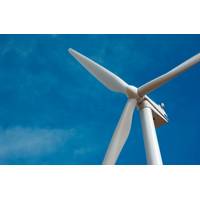Vattenfall Starts Hollandse Kust Zuid
Development of the first unsubsidized offshore wind farm is well underway off the Dutch coast after bouts of bad weather delayed the project earlier this year, said Swedish power company Vattenfall.
The European energy company is building the 750-megawatt Hollandse Kust Zuid 1 & 2 wind farm off the coast of The Hague and Noordwijk. Vattenfall said it expects the wind farm will begin generating electricity by the end of 2022, ultimately supplying power to up to 1.5 million households.
Dozens of researchers at the North Sea will be working day and night through the summer to learn as much as possible about the site where the wind farm will be erected. Using high-tech equipment, they are performing underwater scans to look for bombs and shipwrecks and map the sea floor, it said.
While the activities started in February, the storms Freya and Gareth played havoc with the schedule. The two research ships – with a total crew of 30 – were forced to anchor in Scheveningen harbor.
"It was really disappointing to have such bad weather at the start, but there's not much you can do about it," says Daniel Jenkins, Project Manager at Bibby HydroMap, which is performing the geophysical surveys. "The vessels are designed to handle fairly rough weather conditions, but the equipment is very sensitive. We know that if we collect data during bad weather, the quality will be insufficient. That's simply not an option."
According to Aidan Marchand, who oversees the technical execution of the project from the Vattenfall side, the team was already aware that the North Sea does not always offer the best conditions – weather and otherwise – for ground surveys.
"That's why our original plans allowed for several weeks when we would not be able to collect any data."
Due to the turbulent weather, the research ships have to make the most of the calm periods in order to catch up. "Then the crew collects data around the clock, day and night. This enables us to make optimal use of the times when we have good weather."
The sea floor will be surveyed through to August using scanners that are not harmful to the surroundings. This will then be followed by the collection of soil samples. Along with the geophysical surveys by Bibby HydroMap, another company, Fugro, is carrying out geotechnical surveys.
Bibby HydroMap and Fugro will analyze, test and interpret the collected data through to the end of 2019. This is essential input for the design process of the cabling, foundations and wind power turbines. The engineers have to consider many aspects here.
"The technology for offshore wind is evolving very quickly. The wind turbines installed for Hollandse Kust in 2022 will not be the same as those being made now. With our international experience in wind energy, we can properly estimate these developments and ensure the infrastructure is flexible and suitable for newer technology," Marchand said.
Hollandse Kust Zuid 1 & 2 will make a significant contribution to the Dutch ambition of having 4,500 megawatts of installed capacity offshore by 2023.










